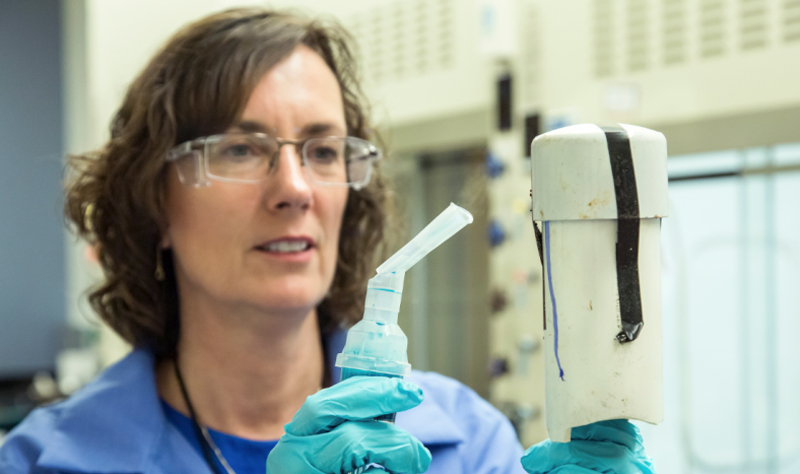It’s harder to create good science, and to follow the evidence where it leads, when your work can be easily corrupted by political meddling. The Department of Energy has significantly expanded protections for its scientific workforce, the majority of which work in America’s great national laboratories, by finalizing a significantly improved scientific integrity policy.
The policy was announced today in a post on Medium and at a National Press Club speech by Energy Secretary Ernie Moniz.
What the policy says
The policy forbids employees from censoring or altering scientific documents or directing scientists to change scientific findings or conclusions. It commits the DOE to complying with federal whistleblower protections for scientists. And it designates a Scientific Integrity Official to serve as an ombudsperson for scientific integrity complaints. In addition, the policy:
- encourages scientists to participate in scientific conferences and publish in scientific journals;
- explicitly protects the ability of scientists to share personal opinions as private citizens, including on social media; and
- gives scientists the right to review and correct public materials that rely on their work, both before and after release.
The language is strong and precise, giving scientists and science advocates a solid platform to stand on in pushing back against the manipulation and suppression of science and the harassment of scientists. Notably, the new policy extends protections to contractors in addition to DOE employees—essential because nearly all of the national labs are run by contractors.
Why do DOE scientists need protections?
The department has been working on this policy for more than two years. Previously, DOE had a “policy statement” that was short on details and provided little meaningful protection from political interference in their work.
In 2014, a veteran DOE scientist working at Los Alamos National Laboratory appeared to have been fired for an academic article he wrote on his own time. My colleague Gretchen Goldman pointed out at the time how the whole embarrassing episode could have been prevented if the department had a better scientific integrity policy. At many federal agencies, these policies stop problems before they start.
In the wake of the firing, UCS met with senior DOE officials to provide specific advice on how to improve protections for DOE scientists. It’s great to see that they took our concerns seriously.
What comes next at DOE
Now that the policy is in place, it will be up to the next energy secretary to implement it. The new policy could not have come at a better time, just days after Congress claimed authority to slash the pay of federal scientists who produce politically unpopular research and amidst enormous uncertainty over what the Trump administration means for scientific independence.

Senators will have the opportunity through the confirmation process to get Energy Secretary nominee Rick Perry to make firm commitments to implementing the new scientific integrity policy. Photo: NRCgov via Flickr
Rick Perry now has a road map. The Senate should use the confirmation process to ensure he commits to following it. Senators should prioritize asking Governor Perry for details on how he plans to implement the new scientific integrity standards. And then they should hold him to those commitments through continued oversight.
A few questions I’d ask Governor Perry: Are there any parts of the scientific integrity policy that he would change? What plans does he have to train DOE employees about how to use the new policy? Will he give the ombudsperson the authority to investigate allegations of political interference in science? What kind of public reporting will the department do?
This last point is important. Scrutiny will be essential for the policy to be meaningfully implemented. Currently, for example, the EPA and Department of Interior publicly report information about allegations of political interference in science and how they were resolved. How will the DOE follow their lead?
Scientific integrity policies across the government
All modern presidents have politicized science—including President Obama. But the Obama administration has simultaneously taken steps to make federal government science and scientists more resilient to such activity. It began with the president’s inaugural pledge to restore science to its rightful place, followed by a presidential memorandum and a directive from the White House science advisor instructing federal agencies and departments to develop scientific integrity policies.
While there are still some laggards, most large federal agencies and departments—including the EPA, NOAA, NASA, the Department of Interior, USDA, and now DOE—now have policies in place that set high expectations for ensuring that independent science and scientists can fully inform government decisions. It’s our responsibility to ensure that these expectations are met. We’ll have more to say on this topic next week.

